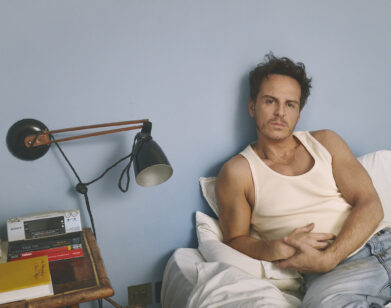Trailer Face-Off! Wuthering Heights vs. Great Expectations

Welcome to Thursday Trailer Face-Off, a feature in which we cast a critical eye on two similar upcoming film releases, pitting them against each other across a variety of categories to determine which is most deserving of your two hours. This week: Wuthering Heights vs. Great Expectations, two Victorian literary classics that delve into the limits of love, revenge, and self-realization.
Premise
Anyone who sat through a middle-school English class has a faint idea of the plot points driving these classic Victorian-era stories. Charles Dickens’ Great Expectations follows Pip, an orphan boy who rises out of obscurity after a nameless benefactor endows him with a large sum of money. Believing it to be the work of the demented spinster he met as a child, Miss Havisham, he hopes to kindle a relationship with her daughter, Estella, his boyhood love. Circumstance makes it difficult for the guilt-ridden Pip to stick to his moral code, and he is forced to reexamine his own ambitions.
The rags-to-riches development of a young boy is also explored in Emily Brontë’s Wuthering Heights, which begins when an adopted boy, Heathcliff, is brought to the Earnshaw family home and raised with the teenaged children. Heathcliff forms a bitter rivalry with the brother Hindley, while falling deeply in love with the sister, Catherine. Eventually, she is married off, and Heathcliff seeks to enact revenge on those who have wronged him. Director Andrea Arnold has created her own bold interpretation of the plot, but as in past adaptions, the second half of the novel, detailing the family’s second generation, is eliminated.
Both plots explore the limits of love, revenge, crime and class through interactions between some of the most memorable characters in literature. You can’t expect us to choose, can you?
Advantage: Tie
Director
Mike Newell is undoubtedly seeking some sort of redemption after directing Disney’s Prince of Persia: The Sands of Time, based on the popular video game. Great Expectations could be just that, and fortunately he’s no stranger to blockbuster pressure, with relative success directing Harry Potter and the Goblet of Fire and Four Weddings and a Funeral, among others. Although Newell has quite a bit more experience, Wuthering Heights director Andrea Arnold has already won critical acclaim, starting with her Academy Award for a short film in 2005. Her artistic direction is clearly visible in the film, shot on a handheld camera and depicting a Heathcliff that slightly strays from the Brontë version. Arnold’s simple presentation remains just as captivating as the more bombastic show Expectations provides. Newell may have more experience adapting a book to film, but we’re going to gamble on Arnold’s artistic vision.
Advantage: Wuthering Heights
Cast
As director of Expectations, Newell does have the advantage of working with a star-studded cast, including previous Potter experience with two of the major actors: Helena Bonham Carter and Ralph Fiennes as Miss Havisham and Magwitch, respectively. Already, these two strong characters are powerfully represented in the trailer, and we’re eager to see them on screen. In Great Expectations, Jeremy Irvine, last seen in War Horse, will play Pip, while Holliday Grainger will play his love interest, Estella. Expectations is rich with English acting elite, but Heights features newcomers in the younger and older roles of Heathcliff and Catherine, a common casting trend for Arnold. Still, we’re sticking with what we know.
Advantage: Great Expectations
Setting
The first shots of Wuthering Heights give us expansive views of the English moor. Few words are spoken; instead, the cinematography is showcased, making viewers acutely aware of the setting as its own character in Arnold’s interpretation—which is perhaps truer to the novel than any previous adaptions. Brontë’s plot used the dreary but beautiful setting to project the doomed love that comes about within its trenches. The handheld camera work and close shots of wildlife allow narrative movement through nature, so that in spite of the absence of music and words—or perhaps, because of it—the scenes remain entirely captivating. The London and Kent of Expectations just can’t compete with the exceptional setting on show in Heights.
Advantage: Wuthering Heights
Romance
Naturally, the success or failure of these film adaptations depends hugely on the chemistry between their leading men and women. For the whole of Expectations, Pip must suffer unrequited love, as the cold Estella has been raised to despise all men. Heathcliff similarly cannot be with the woman he loves, but it is a love that Catherine returns nonetheless. The forbidden affections of doomed lovers à la Romeo and Juliet pull at our heartstrings; and although Pip’s tireless pursuit is admirable, it doesn’t have us feeling much but pity for the poor boy. Whether or not the love is harmful, the relationship between Heathcliff and Catherine reveals what every honest romance should: the depth and power of human emotion.
Advantage: Wuthering Heights
Adaptability
Ultimately, we applaud Arnold’s willingness to adapt a story line that doesn’t have much movement. Yes, the brooding, beautiful lovers are interesting to watch for the length of the trailer, but over the span of an entire movie, will it prove as thrilling as the events that unfold before Pip? Jailbreaks, house fires, and high society are glimpsed in the trailer, and Pip barely manages to survive each plot turn. Arnold makes specific choices to steer the film away from a true novel adaption, which is why it has translated so well to film. In the end, the plots are equally interesting on paper, but the sheer eventfulness of Expectations leads us to believe it is a storyline more appropriate for the silver screen.
Advantage: Great Expectations
Verdict
With the director, actors, and screenplay all chosen within the scope of a major production company, Expectations may very well fall into the not-often-visited realm of great literary adaptions. However, there’s a quiet, unexpected beauty about Heights—a film with little dialogue and no music, with howling winds and refracting lights—that inspires our artistic intrigue and leaves us with even greater expectations.
Winner: Wuthering Heights
For more Trailer Face-Offs, click here.






